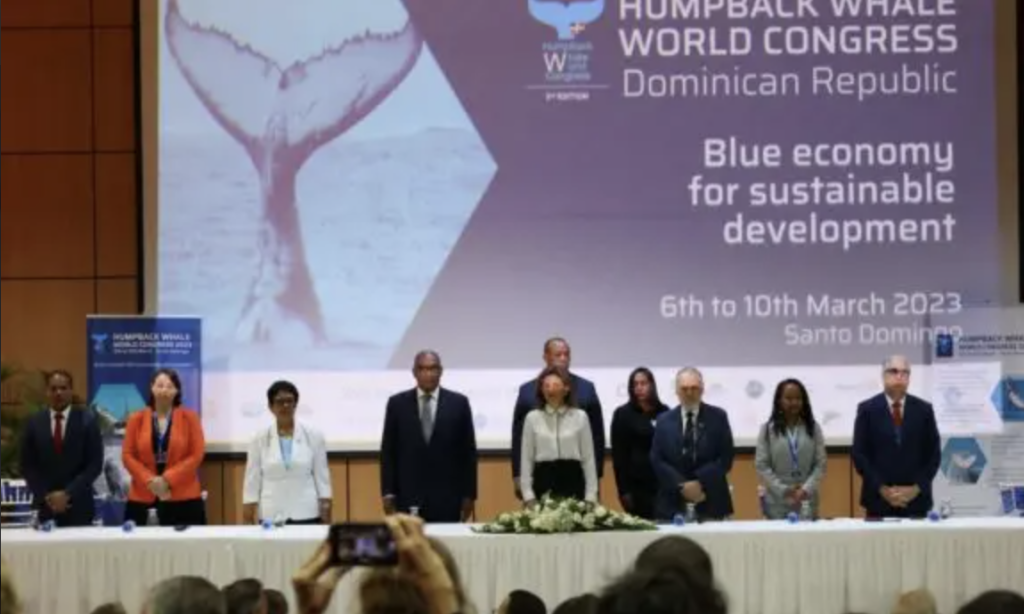
Humpback whales for centuries have preferred spending winters in the waters off Puerto Plata and Samana. A study presented at the Third World Humpback Whale Congress taking place in Santo Domingo and Samana from 6 to 10 March 2023 gave research data on this phenomenon.
Environment Minister Miguel Ceara Hatton spoke during the opening of the Third World Humpback Whale Congress at the Autonomous University of Santo Domingo (UASD).
As covered in Hoy, Ceara Hatton reported that recent studies show that 85% of these mammals that migrate from the Atlantic Ocean concentrate in the waters of the Caribbean Sea, specifically in Samaná. The whales come to mate and reproduce and are sighted here from January to April.
In his welcoming remarks, Ceara Hatton maintained that the DR’s conservationist stance for the protection of crustaceans and marine mammals, in general, is historic. He pointed out that since 1986, great efforts have been made to create the Banco de la Plata and La Navidad marine sanctuaries, the country’s most important marine protected area, with an area of 54,344 square kilometers.
He pointed out that this marine extension legally protects the species’ reproduction area, which constitutes an invaluable resource for the DR.
The president of the National Authority of Maritime Affairs (Anamar), Jimmy García Saviñón, organizer of the congress, spoke of the importance attributed to the protection of the whales and spoke of the constant monitoring of this species that every year delights thousands of Dominicans and foreigners that travel to Samana to take whale-sighting excursions.
García Saviñón mentioned the ongoing Humpback Whale Acoustic Monitoring Program of the Caribbean, with 178 days and 4,250 hours of recording. The monitoring program showed there are more humpback whales singing and staying for longer in Dominican waters than in the entire Caribbean.
He spoke of how the whales are an ecological, economic, social and cultural asset for the Dominican Republic.
He explains that by means of drones they captured the blow of these animals in the Bay of Samaná to know the essence of some hormones and pollutants in them.
Likewise, a study of the sediments at the bottom of the Atlantic Ocean in the Banco de la Plata was carried out to determine the pollutants present. Work continues on the other banks.
Acting President Raquel Peña attended the opening ceremony in representation of President Abinader who was in Ecuador at the time.
Read more in Spanish:
Hoy
7 March 2023

